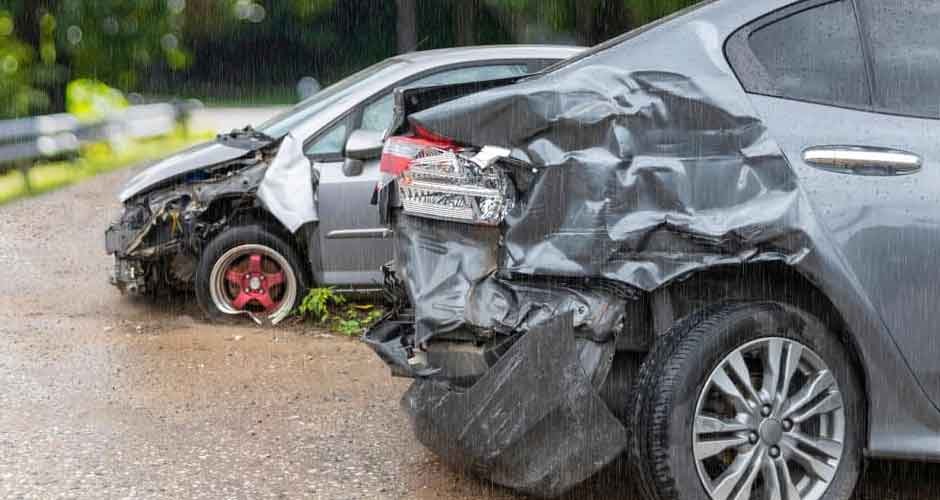St. Louis has diverse weather patterns that can sometimes be unpredictable. The weather ranges from warm summers to icy winters, which poses a unique challenge for drivers. These diverse weather conditions impact road safety throughout the city, and in the unfortunate event of a car accident, they play a crucial role in determining liability. It is important to understand how weather conditions affect liability, as it’s critical for both drivers and legal professionals when determining whether or not you have a case.
Rain and Hydroplaning
St. Louis experiences its fair share of rainfall throughout the year, and wet roads can lead to hazardous driving conditions. When water accumulates on road surfaces, you could risk hydroplaning, which occurs when a layer of water separates the vehicle’s tires from the road, causing it to lose traction. Liability for hydroplaning accidents could shift to the driver in this case, as they failed to adjust their speed and maintain control of their car, or they could have even had insufficient tire tread wear, and be held liable for a failure to maintain their vehicle.
Snow and Ice
Winter in St. Louis can prove extremely treacherous, and is often one of the leading causes of accidents throughout the city. Liability in snow and ice-related accidents may be put on drivers who fail to adjust their driving behaviors, such as reducing speed and increasing following distances. Furthermore, failure to equip vehicles with appropriate snow tires or neglecting to clear ice and snow from the vehicle’s roof can also contribute to liability.
Fog and Reduced Visibility
Dense fog is quite common in St. Louis, especially during the early morning and late evening hours. Reduced visibility poses a significant challenge for drivers, increasing the likelihood of rear-end collisions and other accidents. In such cases, liability may rest on drivers who do not use headlights in low visibility conditions, tailgate, or fail to drive at a safe speed given the limited sight distance.
Extreme Heat
If you’ve spent any time in St. Louis during the summer, you know just how scorching hot it can be. This extreme heat impacts both drivers and road infrastructure. The pavement softens, tires blowout, and engines can become overheated in these extreme conditions. In the case of extreme heat, liability is placed on the drivers who do not properly maintain their vehicles, such as ensuring adequate tire pressure and coolant levels. Not taking the proper precautions can cause serious accidents that otherwise, could have been easily avoided.
Legal Considerations
Determining liability in car accidents around St. Louis involving adverse weather conditions requires a careful look at the circumstances surrounding the accident. Your attorney will also consider whether drivers exercised reasonable care while driving in adverse weather conditions, followed traffic laws, and took the necessary precautions to prevent any accidents from occuring. Evidence such as eyewitness accounts, traffic camera footage, and weather reports can be valuable pieces of information when establishing liability.
Insurance Considerations
Insurance companies in St. Louis often evaluate weather-related accidents carefully when determining liability and settling claims. Drivers are encouraged to review their insurance policies to ensure they have adequate coverage for various weather-related scenarios. Comprehensive insurance, which covers damages not caused by a collision, can be particularly valuable in instances of weather-related incidents like hail damage or falling branches during storms.
Public Awareness and Education
Local authorities in St. Louis play a crucial role in promoting public awareness and education regarding safe driving practices in diverse weather conditions. Initiatives such as public service announcements, educational campaigns, and driver training programs can contribute to reducing accidents caused by weather-related factors. By fostering a culture of responsibility and preparedness, both drivers and pedestrians can collectively work towards creating safer roadways.
Conclusion
Adverse weather conditions are one of the most common reasons for car accidents throughout St. Louis. Drivers must remain vigilant and adapt their behaviors to the ever-changing weather patterns. By understanding the impact of rain, snow, ice, fog, and extreme heat on road safety, individuals can contribute to reducing the frequency and severity of accidents. Additionally, legal professionals must consider these weather-related factors when determining liability, ensuring a fair and just resolution for all parties involved in St. Louis car accidents.






